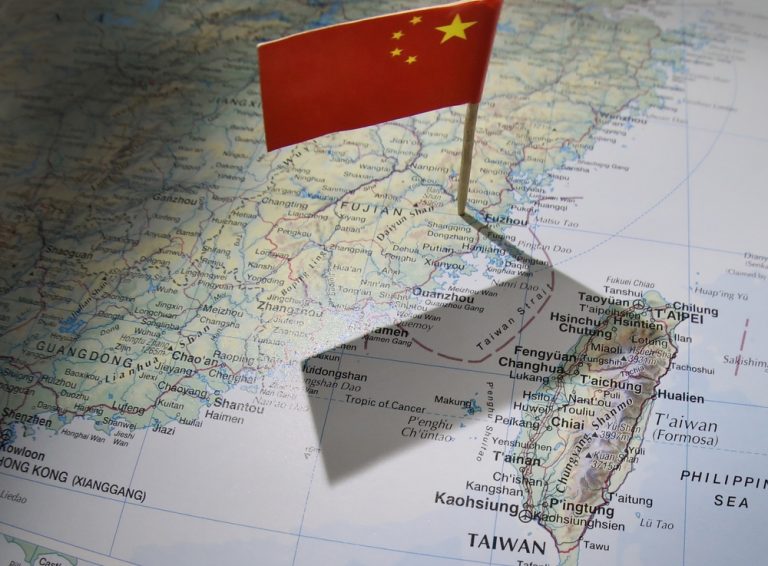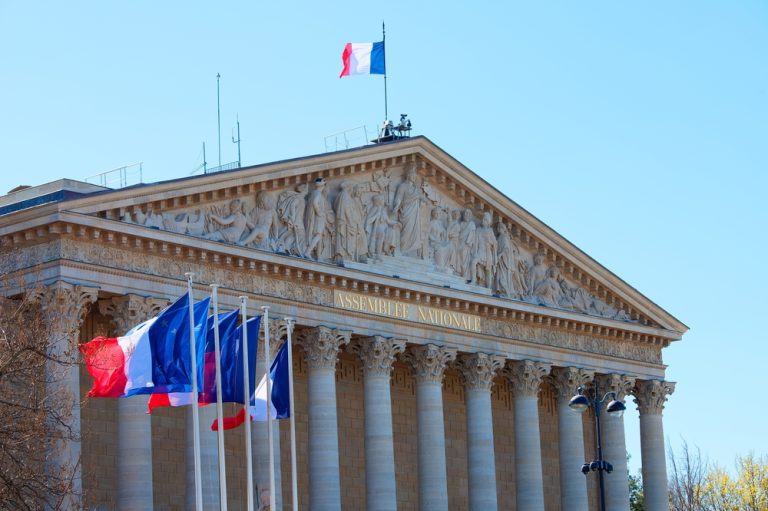
Abiy Ahmed leads Ethiopia into a new civil war
Abiy Ahmed, Prime Minister of Ethiopia and another winner of the politically biased Nobel Peace Prize, has since coming to power tried to portray himself as a progressive liberal politician who will move away from the traditional African model of authoritarian governance, build a European model of government, and thus provide his country with new and unprecedented prospects for development. Ethiopia has indeed demonstrated rapid economic development over the past 10-15 years, attracting investors with its lenient tax laws and vast labor resources, which are considered among the best on the African continent. But reality, as always, has made its harsh adjustments, and today Ahmed’s policies increasingly resemble some of the practices of his predecessors, such as Haile Mariam and Meles Zenawi. The government in Addis Ababa is increasingly characterized by an attempt to centralize power along group and ethnic lines, and an indifference to regional problems that was traditional for many years before. This led to a series of regional ethnic conflicts, and it was not until November 2022 that Ahmed, with great military and diplomatic effort, managed to end the war with rebels in Tigray State, who at one point even threatened to take the state capital. However, this was not the end of the problems, but only a prologue to their aggravation.
The year 2023 seemed to be a good year for Ethiopia’s head of state, with the misleading impression that the country was entering a peaceful and stable period. In particular, the U.S. began easing its sanctions against the country, which reached a climax during the period of maximum aggravation in Tigray State. In June, Coordinator for Strategic Communications at the National Security Council in the White House John Kirby said the U.S. was lifting some restrictions on aid to Ethiopia in light of the improved human rights situation in the country. Kirby said the situation has improved, but made it clear that Ethiopia’s return to the AGOA program, which gives African producers duty-free access to the U.S. market, is “a whole other issue.” Because of this, Ahmed, who has relied entirely on Washington as his main ally, essentially becoming prime minister as an agent of American influence, has increasingly sought partnerships with Russia and China. These two countries are much more loyal to the freedom of third countries in domestic politics. In simple terms, Abiy Ahmed began to feel that under the guise of fighting for “human rights,” the Americans were simply determined to remove him from office, and therefore grew cold toward them. Initially, the Ethiopian government tried to satisfy the Americans in some way, and the Ethiopian Foreign Ministry and United States Agency for International Development (USAID) announced their readiness to investigate the massive theft of food aid in the country, for which USAID had earlier suspended its humanitarian program. According to USAID’s version of events, federal and regional government officials were involved in a large-scale and coordinated campaign to steal food aid, a clear implication of Ahmed’s own role in the corruption. Obviously, the parties failed to reach a compromise, and in August, U.S. President Joe Biden extended the state of emergency in Ethiopia for 1 year, explaining that the situation in the north of the country continues to pose a threat to U.S. national security and foreign policy. Obviously, this is what finally pushed Abiy Ahmed to join the BRICS in order to actually show his reorientation towards the opponents of the U.S.

In addition to the visual demonstration of rapprochement with Brazil, Russia, India, South Africa and China, which showed that Ahmed had maintained his international standing even in the face of conflict with the United States, the image that was supposed to make people forget about the recent civil war was being promoted in other areas as well. Thus, exploiting the image of a “peacemaker” favorite of many dictators, Abiy Ahmed held a telephone conversation with Ukrainian President V.A. Zelensky, during which the parties discussed ways to resolve the conflict between Ukraine and Russia. In addition, he tried to show the release of tension in relations with Egypt over the Grand Ethiopian Renaissance Dam, which constantly threatens to go into a hot phase. In the summer, Ahmed and Egyptian President Abdel Fattah el-Sisi agreed to initiate negotiations to finalize the agreement between Egypt, Ethiopia and Sudan on the filling of the dam as soon as possible and finalize the agreement within the next 4 months. In addition, Ethiopia pledged to take into account Egyptian and Sudanese input needs and minimize possible damage when filling the Renaissance Dam during the 2023-2024 hydrological year. However, these loud words hardly refer to the reality of the situation and it is obvious to every Ethiopian that the threat of an Egyptian attack on the power plant persists and real reconciliation is hardly possible. This is especially evident against the background of the civil war in neighboring Sudan, where Egypt directly supports the Sudanese Armed Forces and Ethiopia indirectly the Rapid Support Forces (RSF) led by rebel Hamdan Dagalo.
Abiy Ahmed is also trying to resuscitate many programs associated with the romantic hopeful period of his 2018-2020 premiership. For instance, the Green Legacy Initiative has launched a campaign to plant 500 million tree saplings in 12 hours. Ethiopian officials, representatives of embassies of various countries as well as ordinary citizens are taking part in the planting of saplings across the country, which is meant to demonstrate national unity. However, such primitive populism puzzled many even 5 years ago, and after the bloody civil war in Tigray, it looks like a real sacrilege. It was decided to liberally unblock even social media, which in the best authoritarian style was blocked in February 2023 amid protests over the Ethiopian Orthodox Church crisis. Over the summer, the Open Observatory of Network Interference (OONI) project, which tracks internet censorship around the world, found that Facebook, Instagram and TikTok were once again accessible in the country without the use of VPN services. “Appeasement” was also actively demonstrated in Tigray State itself, which remained the epicenter of all the problems. Lieutenant General Tadesse Werede, deputy head of the Tigray Interim State Government and former commander of the Tigray Defense Force (TDF), cheerfully announced the demobilization of more than 50,000 combatants as part of the initial phase of the Cessation of Hostilities Agreement in Ethiopia. However, even he added that not all the terms of the peace agreement were being met, as Eritrean forces, which are not part of Ethiopian National Defense Forces (ENDF) were still present in Tigray State. But it turned out that the key flashpoint for Ahmed was elsewhere.

In confronting the Tigray separatists, Abiy Ahmed, in a familiar style of tribalist politics far removed from European civic nationalism, relied on militias from the Amhara, the country’s largest ethnic group of some 25-30 million people. Their main force was the Amhara paramilitary forces FANO, whom Ahmed used not only to suppress the Tigray rebellion but also against the Sudanese army in the 2021 border conflict. However, when the danger passed, he decided to reap the full benefits of success himself, and did not provide support to Amhara state, condemning the region to poverty and marginalization against the backdrop of a prosperous and wealthy Addis Ababa. This could not help but cause tensions in the region, which built up for almost a year and spilled out in August 2023. At the beginning of the month, direct clashes broke out between ENDF soldiers on one side and the Amhara Paramilitary Forces (FANO) on the other over the national government’s April decision to integrate the regional forces into other security agencies. The Amharans wanted to retain their units as a tool to protect their own regional and ethnic interests, but Abiy Ahmed insisted on a fully centralized and totalitarian administration. This eventually spilled over into hostilities that led to the takeover of some towns in Amhara state by FANO fighters. To minimize information about what was happening, the Ethiopian government shut down the recently fully operational Internet, but the cancellation of Ethiopian Airlines flights to Lalibela and Gondar indirectly confirmed that fighting was taking place there. On August 4, this was no longer easy to hide, and the Ethiopian Council of Ministers issued a decree declaring a state of emergency in Amhara region.
It was soon confirmed by foreign sources that fighting was taking place in Gondar and near Bahir Dar. Against the backdrop of fighting between ENDF and FANO, anti-government demonstrations were held in Gondar in Amhara state. In such a situation, the Ahmed government also had to recognize the new civil conflict, and the director of Ethiopia’s National Intelligence and Security Service (NISS) and head of the military command post overseeing the state of emergency in Amhara state, Temesgen Tiruneh, said that armed groups had taken over some districts and towns in the state. The government tried to minimize information about what was happening, but in the first few days reports of 26 civilians killed in the town of Finote Selam in Amhara due to an Ethiopian Air Force strike began to emerge, and by the end of September there is no doubt that the real casualties were already measured in the thousands or even tens of thousands. Now, with the government’s information blockade, it is difficult to speak with certainty about the progress of the fighting, but even if the ENDF completely wiped out the Amhara militias, this is unlikely to solve the ethnic and economic problems of both the region and the country as a whole. As luck would have it, Tigray State is currently experiencing the largest locust infestation in recent years. As a result, the Interim State Government has asked for help from the Ethiopian government, the international community and locals to fight the insects that threaten to plunge the region into famine. There is little doubt that Addis Ababa will take a passive attitude to this problem, which means that Tigray could plunge into a new armed confrontation, joining Amhara. Against this background, rumors of government repression against Muslims in the Oromo states and Ethiopian Somalia are becoming more and more active, referring to the anti-Islamic policies of Ahmed Meles Zenawi’s predecessor. Whether it is true or not, it is safe to say that Abiy Ahmed has failed to live up to the expectations placed on him by both the world community and the people of Ethiopia. And he will go down in history as another usurper in Addis Ababa, thinking of personal gain, and ethnic clashes during his premiership will become a common, albeit sad reality.


Average Rating